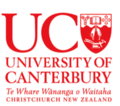Selected photos from the conference can be downloaded from here.
The 22nd ITC Specialist Seminar on
Energy Efficient and Green Networking (SSEEGN 2013)
will take place on November 20-22, 2013 in Christchurch, New Zealand.
22 ITC SSEEGN is technically sponsored by the IEEE Communications Society and will be held in conjunction with the Australasian Telecommunication Networks and Applications Conference (ATNAC 2013)
Call for Papers (PDF)
Once limited to the computing world – specifically, to data centres - energy efficiency has become an issue in telecommunication networks in the recent years, mainly owing to two reasons: the increased attention to environmental aspects, and the growing operational expenditure (OPEX) of Telcos and Internet Service Providers (ISPs). Great attention is currently dedicated to energy-efficient “green” networking in both wired and wireless scenarios. A number of techniques have been identified and are continuously being consolidated and improved to reduce the energy consumption in networking equipment, while maintaining at the same time a desired level of Quality of Service (QoS) – and, ultimately, of Quality of Experience (QoE) in the users’ perception – in dependence of the actual carried traffic load. The range of possible actions spans from the design aspects (re-engineering of both silicon and network architecture to reduce complexity) to the on-line operation at small and large time scales (dynamic adaptation of devices’ energy consumption-performance trade-off and “smart sleeping” techniques). While Green Networking is pacing to become a mature bulk of technologies, many aspects still need to be investigated to harmonize its presence in the complex scenario of the Future Internet.
This ITC Specialist Seminar is technically sponsored by the IEEE Communications Society. The papers will be archived in the IEEE Xplore. The conference aims at providing a forum for discussion of timely and relevant aspects concerning wired and wireless green networks. Contributions are solicited on all advanced research issues in this respect, and particularly (but not limited to) on the following topics:
- Energy consumption / performance trade-off
- Control and optimization techniques applied to green networking
- Network virtualization technologies for energy efficiency
- Device- and network-level energy optimization
- Applications of dynamic adaptation techniques (Low Power Idle and Adaptive Rate)
- Energy-aware routing
- Green extensions to Traffic Engineering protocols and techniques
- End-to-end energy efficiency
- Energy-aware cross-layer and cross-platform techniques
- Modelling and optimization of energy consumption on network-attached hosts
- Networking for green data centres
- Virtual and green base stations in wireless mobile networks
- Caching techniques for green data-intensive applications
- Interaction between green power sources and green networks
- Energy-aware performance models and metrics
- Data- and Control-Plane interaction for the implementation of energy-efficient control strategies
- Energy efficient Content Delivery networks and Content Centric networks
- Energy awareness for network users
- Green Networking governance
- Disruptive approaches in energy-aware networking








